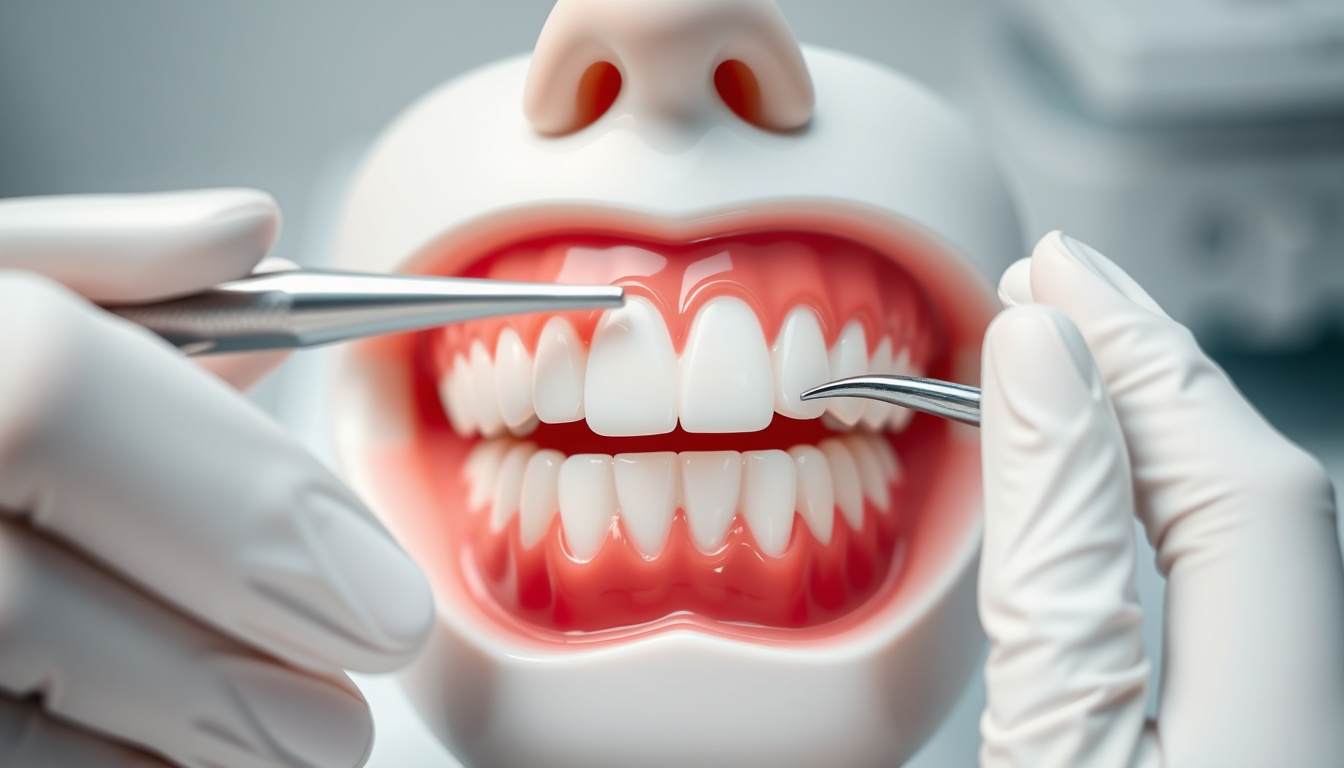If you feel a sharp pain when you eat hot, cold, sweet, or sour food, you want help. Pain can harm the simple joy of eating. A type of dentist works with sensitive teeth. They train to find the small cause of pain and fix it. In this article, you read how these dentists help you feel better for a long time.
──────────────────────────────
Understanding Tooth Sensitivity: What Causes It
Your teeth have a hard coat called enamel. Enamel covers soft dentin and hidden nerves. When you brush too hard, eat sour food too often, lose gum support, or grind your teeth, the enamel may wear away. Then, the nerve ends show up. A small change in temperature or taste triggers pain.
Some reasons for sensitivity are:
• Tooth decay or small holes
• Old fillings that no longer fit well
• Gums that shrink away
• Cracked or chipped teeth
• A sour diet with citrus or fizzy drinks
Dentists who work on sensitive teeth find these causes. They use tests like X-rays and gentle air or water touches to see where the pain comes from.
──────────────────────────────
How Dentists Find the Cause
Your first step is to see a sensitive teeth dentist. They start by asking about your pain and habits. They look at your teeth and gums with care. They may blow cold air or run water along a tooth to check your reaction. They also can use X-rays to see hidden problems.
Knowing the cause helps them pick the right care step. For example, pain from gum change needs a different fix than pain from worn enamel.
──────────────────────────────
Easy Ways to Treat Sensitive Teeth
Sensitive teeth dentists use several tools to calm the pain, cover the exposed dentin, and mend your teeth. Some methods are:
-
Special Toothpaste and Mouthwash
These products have special salts that block nerve signals. Your dentist can suggest a brand or give you a treatment in the office. -
Fluoride Treatments
A fluoride gel or varnish makes enamel stronger. It helps cover the dentin and lowers pain. -
Bonding or Sealants
A thin layer of material can be added to weak areas. This cover keeps sensitive spots safe. -
Gum Grafting
If gums shrink and leave roots open, the dentist may take firm gum tissue from another spot. They place it over the exposed root. -
Helping with Tooth Grinding
Grinding wears enamel. A custom mouth guard at night can shield your teeth. -
Repairing Old Dental Work
Worn fillings or crowns can cause pain. Replacing or fixing them often ends the pain.
Using more than one of these steps helps you feel better for a long time.

──────────────────────────────
Home Care Habits
Your dentist may ask you to change some habits:
• Use a soft-bristled toothbrush to protect your enamel.
• Brush with small, gentle circles instead of harsh scrubbing.
• Cut back on sour drinks and food like citrus, soda, or wine. Use a straw to lower contact with your teeth.
• Rinse your mouth with water after eating sour items to calm acids.
• Wait 30 minutes after sour food before you brush to keep enamel strong.
• Pick a toothpaste made for sensitive teeth as part of your care.
These small steps work with your dentist’s care and help you feel better every day.
──────────────────────────────
What to Expect in Follow-Up Visits
Your dentist will ask you to come back for a quick check. They watch how your mouth feels after changes. They adjust the plan if you still have pain. Many people see less pain after a few weeks or a few months. If pain does not drop, your dentist may run more tests to find any hidden problem.
──────────────────────────────
Questions About Sensitive Teeth Care
Q1: How is a sensitive teeth dentist different?
Sensitive teeth dentists are general dentists with extra skill in handling tooth pain. They focus on steps that ease sensitivity.
Q2: Can the pain go away for good?
Many people see a big drop in pain. Keeping results means you follow the care plan and the home habits.
Q3: Do treatments hurt?
Most fixes are small and do not hurt. Many steps are quick with little to no discomfort.
──────────────────────────────
Trust in Your Sensitive Teeth Care
The American Dental Association gives tips for safe care. They say a clear plan and care steps help keep teeth safe. Trust experts to fix your pain and keep your smile feeling good.
──────────────────────────────
Take a Step Toward a Comfier Smile Today
Do not let pain spoil your meals any longer. A check-up with a sensitive teeth dentist can change your day. With a clear check, the right care, and simple home habits, you can eat and drink with ease. Call a sensitive teeth dentist today, and soon, your smile will feel calm and clear.




